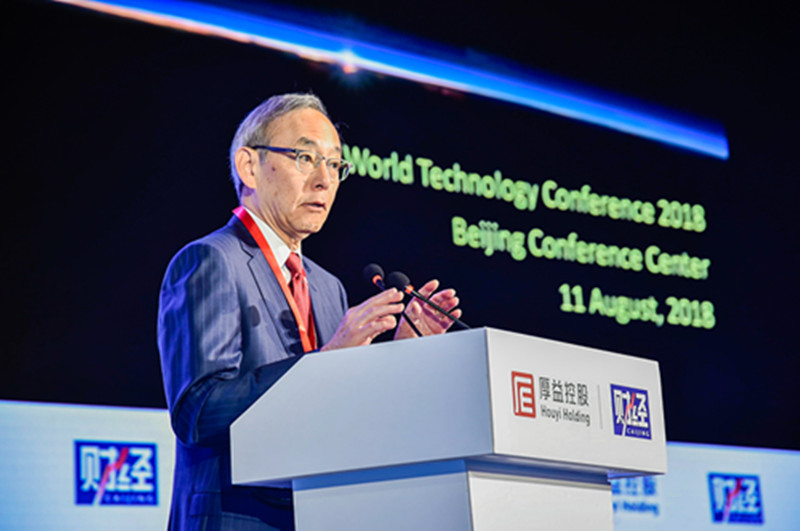
By Tang Guhan
The electricity prices of renewables have been considerably reduced recently, which has brought about enormous opportunities for us in the future, said Steven Chu, a Nobel Prize Laureate in Physics in 1997 as well as a former United States government official on Saturday.
He made a speech on the topics of climate change and sustainable development at the 2018 World Forum on Scientific and Technological Innovation being held in Beijing from August 10 to 12.
 Steven Chu spoke at the 2018 World Forum on Scientific and Technological Innovation. (Photo Credit: Chen Xinyi)
Steven Chu spoke at the 2018 World Forum on Scientific and Technological Innovation. (Photo Credit: Chen Xinyi)
The world's average temperature has climbed one-degree centigrade since 1975, which is a significant change when compared with the previous years.
"Data from geologic studies have shown that a one-degree centigrade increase could lead to a range of a six to nine meters' surge in the sea level, which suggests that almost 10 percent of the earth's people will be displaced by then," Chu underlined.
The aggregated carbon dioxide emissions volume is dispersed in two ways, half of them being absorbed by the earth and oceans, while the rest of them go into the recycling circle to be degraded after millions of years.
"The impacts of global warming have been reflected in the dryness in more and more areas, for instance, California had witnessed 17 forest fires last year and its winter has become even shorter than ever before," he added.
Therefore, sustainable energy sources have become more significant nowadays.
The market price of electricity derived from solar power has been nailed down to a range of 2 cents to 2.5 cents per kilowatt in many places like the Middle East. Moreover, the price will be further reduced to below 2 cents by 2030, according to Chu.
However, it is inevitable that renewables are generally inconsistent, but "the storage of this energy could solve this problem," Chu said. "The approach is complicated, but Artificial Intelligence (AI) could help in this regard," Chu stated. "AI and machine learning could be utilized in the process of wind power development to cut the losses during energy transmissions," Chu added.
"In general, 30 percent of the energy in the world could be derived from renewables while machine learning and AI technologies could help to reach that goal," Chu noted.
Steven Chu and his team are developing a new Li-Sulfur battery, which is three to four times lighter than normal batteries. The charging time is also shortened. New Energy Viehcles (NEVs) equipped with this battery could exceed 150 miles while only requiring a 5 minutes charging time.
